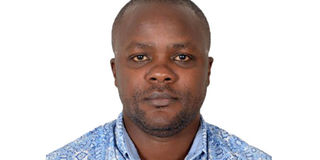Prime
A ‘professor of Kiswahili’ without formal training

Caesar Jjingo
What you need to know:
- I have no doubt that most Ugandans ‘know’ Prof. Kajubi through his commission, the roadmap of the 1992 Government White Paper on education
Recently, Makerere University in conjunction with the US Mission in Uganda, held the third memorial lecture for late Prof William Senteza Kajubi. Prof Kajubi was the first African to receive the Fulbright Scholarship to study in the USA. While Prof. Kajubi was an international icon, he is so far the only person to have served as Makerere University’s Vice Chancellor, twice.
I have no doubt that most Ugandans ‘know’ Prof. Kajubi through his commission, the roadmap of the 1992 Government White Paper on education. The first provisions of teaching Kiswahili as a compulsory subject in all Uganda’s primary and secondary schools, exist in this white paper.
Taking into consideration the aforementioned provisions, I bring into focus another Fulbright scholar, Prof Ruth Gimbo Mukama. Prof Mukama is the pioneer of teaching Kiswahili language in the institutions of higher education in post independent Uganda, Makerere University in particular. While Makerere provided space for Kiswahili research since the 1930s during the lifespan of the Inter-Territorial Language (Kiswahili) Committee, its collapse in 1964 directly interrupted the progress of Kiswahili at the university and East African region at large.
It was until 1979 when Kiswahili was once again reintroduced at Makerere University. “... in 1979, I got employed to teach English and Linguistics at Makerere. My Head of Department requested me to start Kiswahili courses…” she told the author. Unlike most language teachers, Prof has been teaching Kiswahili at Makerere University without its formal training. Prof completed her first degree at Makerere in 1970, focussing on Literature in English – in terms of languages, she was proficient in Lugwere, English and some basic French and Luganda.
She was ‘first’ introduced to the Kiswahili language at the University of York in 1971, during her graduate studies in General Linguistics. By 1971, linguistics was also a new field of study for her. Other than conceptualising the new field, Prof told the author that she “had to attend demonstration classes where there were Kiswahili learners of European origin. Lecturers at York thought that whoever came from East Africa could speak Kiswahili.”
At York, Prof was on a conditional scholarship, therefore, she had to abide by its conditions. Thus, she was informally assisted by two graduate students from Tanzania to learn Kiswahili. When they returned to Tanzania, she visited the library to read different Kiswahili texts and use the audio-lingual laboratories to improve her comprehension and pronunciation of Kiswahili.
Such practices improved her expertise in linguistics and Kiswahili language, which motivated her to write her PhD dissertation by comparing Lugwere and Kiswahili to graduate with a PhD in Linguistics in 1973 at the age of 27 years. However, due to the quagmire happening in Uganda by 1970s, Prof opted for other universities – i.e., of Zambia, Dar-es-salaam, Botswana, respectively, – teaching English and Linguistics apart from at the University of Dar-es-salaam where she taught Kiswahili. In 1979, she joined Makerere University to teach English and Linguistics and later Kiswahili.
A closer look at Prof Mukama’s journey towards being a Kiswahili specialist can be questioned, especially to me who ‘believe’ that without a language certificate(s), someone can hardly get a job or consider extending his/her formal training further. If given the chance, I would put it that Prof’s journey was a result of being a victim of circumstances which are quite hard to connect but can equally qualify her as a genius or call it special skill and/or talent.
In simple terms, at the age of 24 years, in a foreign country, Prof, had to simultaneously, formally and informally learn two distinctive scientific but ‘somehow’ interrelated fields, i.e., linguistics and Kiswahili.
While she could have had all the technical and personal support in understanding linguistic theories, I think it was much more difficult for her to manoeuvre through the language structures of the Kiswahili language especially in England where its usage is marginal.
While at Makerere, Prof, served as a curriculum leader in Linguistics/English/Kiswahili programmes and served in various capacities – institutional, national and international – before she retired in 2016.
Presently, Prof. is teaching Kiswahili language at Kabale University.
The author, Caesar Jjingo is a specialist of Kiswahili pedagogies and materials development at Makerere University.




